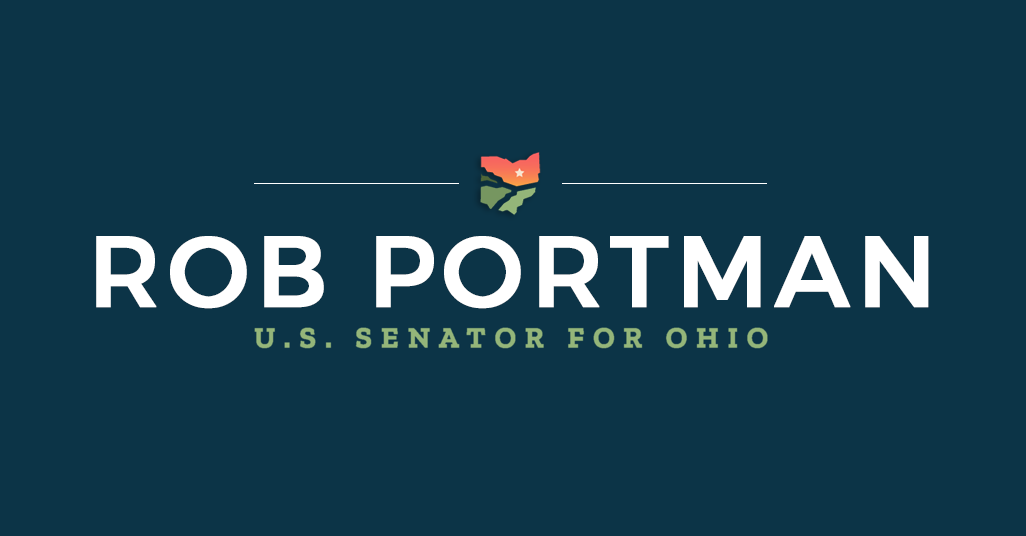Source: United States Senator for Ohio Rob Portman
July 29, 2021 | Press Releases
WASHINGTON, DC – U.S. Senators Rob Portman (R-Ohio), Jim Risch (R-ID), Bob Menendez (D-NJ), and Chris Murphy (D-CT) applauded Committee passage of the International Pandemic Preparedness and COVID-19 Response Act (S. 2297), comprehensive legislation to improve global health and pandemic preparedness and enhance COVID-19 response efforts.
“The COVID-19 pandemic exposed major gaps in our prevention and preparedness strategies when confronting global pandemics. It is clear that we are in need of increased national and international coordination, transparency, and accountability, as well as effective early warning systems,” said Portman. “I am pleased that this legislation has passed Committee, especially my amendment with Senator Coons that requires the Department of State to include excess domestic vaccine supply as part of its global vaccination strategy.”
“After nearly 18 months of work, I am proud the committee was able to come together today to pass comprehensive legislation that will enact stronger prevention and preparedness measures to get ahead of the next infectious disease threat,” said Risch. “Our legislation will help to identify and close gaps in global health security that make us vulnerable to outbreaks, improve the coordination of U.S. global health diplomacy and assistance efforts, establish effective and transparent international early warning systems, and create an accountable, international incentive fund to advance global health security and pandemic prevention and preparedness. With all of these tools, we should be better prepared to prevent, detect, and respond to future infectious disease threats.”
“As COVID-19 continues to surge across the globe, we are coming together in recognition that the novel coronavirus will continue to pose a real threat to American lives and livelihoods as long as it persists anywhere in the world. The United States must lead an international response. And as we have learned from this dark chapter in which we have already lost over 4 million lives, only through improved planning and better preparation here in the United States and around the world can we protect ourselves, our communities, and future generations from emerging pathogens,” said Menendez. “I want to thank my colleagues for their help in putting together a strong bipartisan legislation to fully leverage the weight of U.S. diplomacy and foreign engagement to ensure the United States remains a leader in enhancing global health security. I look forward to our continued work as the International Pandemic Preparedness and COVID-19 Response Act moves on to the Floor for consideration by the full Senate.”
“COVID-19 has taught us a painful truth: we can’t shut ourselves off from the rest of the world and hope infectious diseases don’t reach our shores. Now the question is whether or not we will learn from this and take bold action to prevent a future pandemic,” said Murphy. “I’m proud to have worked on this bipartisan legislation to deter and detect outbreaks, and prevent future pandemics by investing in global vaccine efforts and building up public health systems around the world.”
Key provisions of the senators’ legislation include:
Responding to the current pandemic:
- Recognizes that it is in the United States’ national security interest to work with partners to end the current COVID-19 pandemic, including by helping to mitigate the economic impacts in highly vulnerable countries and regions.
- Provides for enhanced Congressional oversight of U.S. foreign assistance previously appropriated for the international COVID-19 response, including for the sharing of U.S. vaccines overseas.
- Calls for detailed strategy on global vaccine distribution to ensure access to countries most in need, and for leveraging other global health programs to help bolster international COVID-19 response.
Enhancing strategic planning:
- Requires the president to advance a comprehensive Global Health Security Strategy with clear goals, objectives, and lines of responsibility to better guide U.S. investments in global health security, eliminate duplication and waste, and enable partner countries to close capacity gaps.
Strengthening interagency coordination and diplomatic engagement:
- Encourages the president to establish a Committee on Global Health Security and Pandemic and Biological Threats at the National Security Council, to ensure policy coherence and continuity of effort across the agencies engaged in international and domestic prevention, preparedness, and response.
- Establishes a special representative for global health security and diplomacy at the Department of State, supported by a deputy at the United States Agency for International Development (USAID), to lead diplomatic efforts, and ensure the efficient and effective execution of U.S. foreign policy and assistance for global health security.
Promoting transparency, accountability, and long-term results:
- Prioritizes resources for partner countries with demonstrated need and commitment to transparency and results.
Strengthening USAID’s emergency response capacity:
- Authorizes USAID’s disaster surge capacity and establishes the agency as the program lead on emergency humanitarian response and efforts to address second order development impacts.
Joining global efforts to develop vaccines for epidemic diseases:
- Authorizes U.S. participation in and funding for the Coalition for Epidemic Preparedness Innovations, enabling the United States to join more than a dozen countries and private foundations around the world in a joint effort to develop new vaccines to prevent and contain epidemics, including COVID-19 variants.
Improving early detection and response of potential pandemic threats:
- Institutes an annual intelligence threat assessment about transmission of potential pandemic pathogens to facilitate early detection and prevention of pandemic threats.
Creating opportunities for innovation and burden-sharing:
- Authorizes U.S. participation in innovative partnerships and financing mechanisms, including the establishment of the Fund for Global Health Security, to catalyze public and private investments in global health security and pandemic prevention and preparedness and help resource-constrained countries strengthen health symptoms and improve pandemic prevention and preparedness.
Full text of the legislation as introduced can be found here.
###
